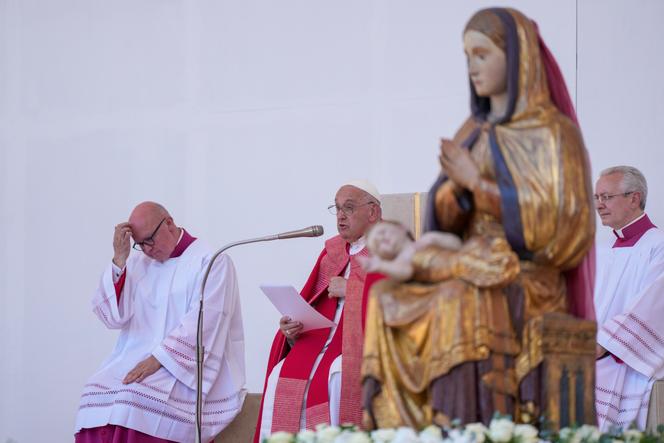


This time, the answer is clear. In an interview with the American television network CBS that aired on Monday, May 20, Pope Francis said he was ruling out the possibility of ordaining women deacons, a topic that has been hotly debated since the beginning of his pontificate, and particularly since the opening of the synod on the future of the Church, whose first general assembly was held in October 2023.
As a reminder, deacons are assistants to priests and can be entrusted with various responsibilities related to governing a parish or leading a church service, including baptisms or weddings. The pontiff gave his answer to journalist Norah O'Donnell, who asked: "I'm curious, for a little girl growing up Catholic today, will she ever have the opportunity to be a deacon and participate as a clergy member in the Church?"
"No," retorted the pope. He went on to justify his position, drawing on the etymology of the word deacon (from the Greek diakonos, "servant, assistant"): "But women have always had, I would say, the function of deaconesses without being deacons, right? Women are of great service as women, not as ministers [...] within the Holy Orders."
A "minister within the Holy Orders" is a person who holds an "ordained ministry" within the Catholic Church. In addition to deacons, this includes priests and bishops. Ordination is a highly codified practice (it takes place during a solemn ceremony, with the placement of a priest's hands on the future "minister," followed by a prayer of consecration). It is considered a sacrament – in other words, it "sanctifies."
However, according to Catholic tradition (but also among the Orthodox), only a man can be "sanctified" and ordained in this way, whether to become a bishop, priest or deacon. At the end of the ceremony, the new "minister" is considered to be a descendant of the twelve apostles designated by Jesus in the New Testament (all men) and to derive his authority from Christ himself (incarnate as a man), whom he is entrusted to represent on earth, in person.
For those in favor of women's ordination, however, these reasons don't hold water. Can we really say that the divine nature of Christ is masculine? Can we really be sure that the apostles were all men? If the Gospels are to be believed, Jesus was surrounded by many women, starting with Mary Magdalene, the first witness to the resurrection and the first to announce the "good news" to the rest of the disciples. She is sometimes nicknamed "apostle of the apostles," literally "envoy of the envoys."
You have 61.82% of this article left to read. The rest is for subscribers only.
